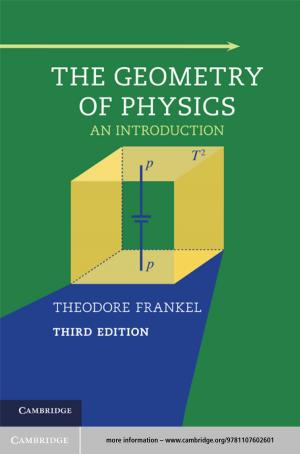Aperiodic Order: Volume 1, A Mathematical Invitation
Nonfiction, Science & Nature, Mathematics, Topology, Science| Author: | Michael Baake, Uwe Grimm | ISBN: | 9781316183670 |
| Publisher: | Cambridge University Press | Publication: | August 22, 2013 |
| Imprint: | Cambridge University Press | Language: | English |
| Author: | Michael Baake, Uwe Grimm |
| ISBN: | 9781316183670 |
| Publisher: | Cambridge University Press |
| Publication: | August 22, 2013 |
| Imprint: | Cambridge University Press |
| Language: | English |
Quasicrystals are non-periodic solids that were discovered in 1982 by Dan Shechtman, Nobel Prize Laureate in Chemistry 2011. The underlying mathematics, known as the theory of aperiodic order, is the subject of this comprehensive multi-volume series. This first volume provides a graduate-level introduction to the many facets of this relatively new area of mathematics. Special attention is given to methods from algebra, discrete geometry and harmonic analysis, while the main focus is on topics motivated by physics and crystallography. In particular, the authors provide a systematic exposition of the mathematical theory of kinematic diffraction. Numerous illustrations and worked-out examples help the reader to bridge the gap between theory and application. The authors also point to more advanced topics to show how the theory interacts with other areas of pure and applied mathematics.
Quasicrystals are non-periodic solids that were discovered in 1982 by Dan Shechtman, Nobel Prize Laureate in Chemistry 2011. The underlying mathematics, known as the theory of aperiodic order, is the subject of this comprehensive multi-volume series. This first volume provides a graduate-level introduction to the many facets of this relatively new area of mathematics. Special attention is given to methods from algebra, discrete geometry and harmonic analysis, while the main focus is on topics motivated by physics and crystallography. In particular, the authors provide a systematic exposition of the mathematical theory of kinematic diffraction. Numerous illustrations and worked-out examples help the reader to bridge the gap between theory and application. The authors also point to more advanced topics to show how the theory interacts with other areas of pure and applied mathematics.















